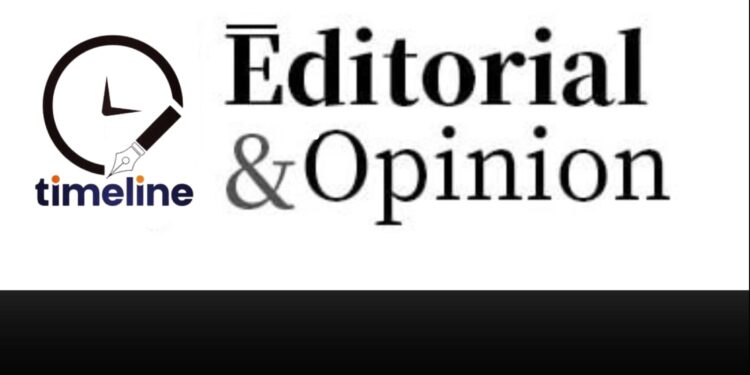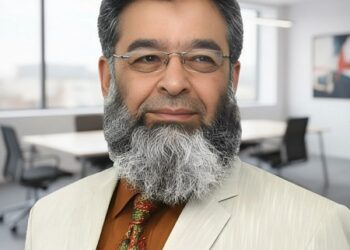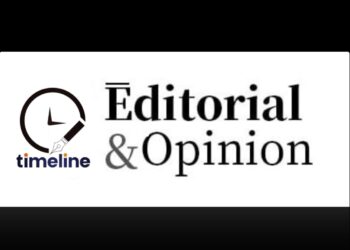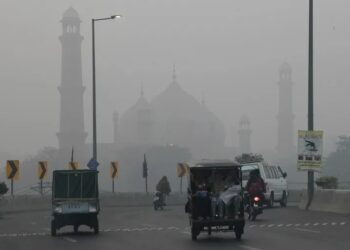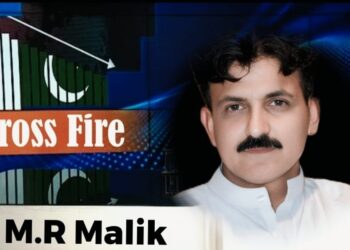Written by: Abdul Basit Alvi
In political theory, the term “Hard State” describes a government system that is centralized, authoritative, and highly capable of maintaining control over its territory and population. A Hard State is marked by the strict enforcement of laws, rigid governance, and strong leadership, which stands in contrast to a more liberal or “soft” state where power is decentralized and civil liberties tend to outweigh state intervention. Although a Hard State might appear authoritarian or oppressive in certain aspects, it offers several advantages, especially in terms of security, national development, and the safeguarding of societal values.
One of the primary benefits of a Hard State is its ability to secure national defense. With its centralized authority and substantial resources, a Hard State can establish a powerful military and defense system, capable of deterring external threats and protecting its borders. This capability extends to addressing challenges such as terrorism, insurgencies, and foreign intervention. The state’s centralized power also enables swift responses to internal issues like civil unrest, protests, or organized crime. Through robust law enforcement institutions, a Hard State can maintain order and ensure public safety, preventing chaos. In emergencies like natural disasters, pandemics, or civil conflicts, a Hard State can act quickly and decisively, mobilizing resources and implementing policies without the delays often seen in decentralized or weak systems.
A Hard State also enforces stringent social and legal norms, fostering cohesion and unity within society. Its clear and efficient legal system ensures that crimes are promptly punished, creating a sense of security among citizens who know there is little tolerance for lawlessness. The state’s strong governance also allows it to suppress civil disobedience, ensuring that society operates within the boundaries of the law. While this may be viewed as authoritarian, it helps mitigate the risks posed by rebellious factions or disruptive social movements that could threaten societal stability. Additionally, a Hard State can promote a unified national identity, integrating diverse ethnic, religious, and cultural groups under a common vision. This approach can reduce ethnic or sectarian violence by fostering a shared sense of belonging and allegiance to the state.
Another critical advantage of a Hard State is its capacity to implement policies that stimulate economic growth and national prosperity. Through centralized coordination, a Hard State can drive long-term economic strategies that are difficult to achieve in more fragmented systems. It can oversee state-led initiatives, infrastructure projects, and regulatory measures to ensure economic growth aligns with national priorities. With its strong authority, a Hard State can invest heavily in infrastructure, such as transportation networks, energy systems, and communication infrastructure, laying the groundwork for economic development. This promotes job creation, trade facilitation, and improved connectivity, both domestically and internationally. A Hard State can also regulate natural resources to ensure their sustainable and equitable use, as well as attract foreign investment by providing a stable and predictable business environment, essential for long-term economic planning.
In contrast to decentralized systems, a Hard State can implement economic reforms and policies swiftly. Whether addressing inflation, unemployment, or industrial growth, centralized power allows for a cohesive approach to economic challenges. Furthermore, a Hard State is better positioned to assert its sovereignty on the global stage, being less susceptible to foreign influence or pressure from international organizations. This autonomy guarantees that the state’s decisions are driven by its own national interests, rather than by external pressures. In today’s globalized world, countries often face outside influences, such as foreign meddling in domestic affairs or economic exploitation by multinational corporations. A Hard State is well-equipped to resist such intrusions, safeguarding its sovereignty. While a Hard State maintains a strong and independent stance, it is also in a better position to engage in strategic diplomacy. By demonstrating strength, the state can form beneficial alliances and negotiate treaties that enhance its long-term security and economic prosperity. A Hard State’s centralized power enables it to create and enforce laws that safeguard the public and promote societal well-being. With a centralized system of governance, policies, laws, and regulations are applied consistently throughout the country, providing stability and ensuring that citizens know what to expect from the government and how laws will be enforced. In a Hard State, the legal system operates efficiently and effectively, with criminals being swiftly apprehended and punished, ensuring justice is served without unnecessary delays. This builds public trust in the legal system and minimizes the sense of impunity that is often present in weaker states.
Centralized control over public institutions allows a Hard State to deliver services such as healthcare, education, and social welfare in an efficient and equitable manner. State officials are held accountable for the quality of these services, and the system has less opportunity for corruption or inefficiency. During crises—whether natural disasters, economic downturns, or political instability—a Hard State can take decisive action to mitigate damage and restore order. Its ability to control resources and enforce decisions ensures that the government can mobilize forces, resources, and expertise to address the crisis effectively, including coordinating disaster relief, providing financial assistance, and ensuring citizen safety.
A Hard State can also maintain social stability during crises by enforcing law and order, preventing looting, violence, and other forms of unrest that could worsen the situation. With strong governance, it can also focus on long-term prevention, such as preparing for natural disasters, economic recessions, or public health emergencies, reducing the impact of these events.
Furthermore, a Hard State plays a crucial role in fostering national unity, particularly in diverse or fragmented societies. By emphasizing shared national goals and values, it helps create a collective sense of identity and purpose. The state can take active steps to preserve and promote national culture, language, and traditions, protecting them from the pressures of globalization or foreign cultural influences. Through strong state authority, national symbols, and campaigns, a Hard State can inspire patriotism and national pride among citizens, contributing to social cohesion and reducing internal divisions. By focusing on nation-building, a Hard State can unite citizens across ethnic, religious, and regional lines, reinforcing loyalty to the state and its national project.
Several nations have transitioned into or maintained a Hard State model, benefiting from significant advancements in national development, social order, and security. Singapore, a small island nation in Southeast Asia, serves as a prime example of a country that has thrived under a Hard State model. Following its independence in 1965, Singapore faced challenges such as poverty, political instability, and ethnic tensions. Its first Prime Minister, Lee Kuan Yew, understood that strong, centralized leadership and authoritative governance were essential for stabilizing the country and fostering economic growth. Under Lee Kuan Yew’s leadership, Singapore embraced a top-down, state-driven economic model centered on industrialization, education, and infrastructure development. The government introduced policies to attract foreign investment, cultivate a highly skilled workforce, and establish world-class infrastructure. As a result, Singapore evolved from a struggling port city into a global financial center, boasting one of the highest GDP per capita rates in the world. Singapore is a multiracial society with major ethnic groups, including Chinese, Malay, and Indian populations. The government implemented policies that fostered national unity and social cohesion, often at the expense of political freedoms. Strict laws against racial discrimination, state intervention in religious practices, and mandatory national service helped preserve peace and stability in this diverse society. Known for its stringent laws and zero-tolerance approach to crime, the government imposed severe penalties for various offenses, such as drug trafficking, corruption, and vandalism. This tough stance on crime has helped establish Singapore as one of the safest cities globally, drawing both tourists and international businesses. Singapore’s transformation into a prosperous, stable, and secure nation serves as a prime example of how a Hard State approach can deliver significant benefits in terms of economic development, social harmony, and security. Its success is underpinned by strong central governance, efficient law enforcement, and pragmatic policies that prioritize long-term national interests over individual freedoms.
Following the establishment of the People’s Republic of China in 1949, the country faced immense challenges, including widespread poverty, political instability, and foreign interference. Under the leadership of the Chinese Communist Party (CCP), China transitioned from a fragmented, war-torn nation into a powerful centralized state. Since the 1980s, China has blended market reforms with strict political control, making it a unique example of a Hard State. China’s economic transformation is one of the most remarkable success stories of the 20th and 21st centuries. The government implemented comprehensive economic reforms while maintaining tight political control. This hybrid system—combining elements of a market economy with state intervention and direction—has helped China become the world’s second-largest economy. Centralized economic planning, infrastructure investment, and state-owned enterprises were key to this growth.
The UAE, a federation of seven emirates, each ruled by its own monarch, has maintained a centralized governance structure, especially under the leadership of Sheikh Mohammed bin Rashid Al Maktoum, the ruler of Dubai, and other key figures. The UAE’s leadership has utilized centralized authority to shift the economy away from oil dependence, focusing instead on diversification through investments in tourism, real estate, finance, and technology. This shift has transformed cities like Dubai into global business hubs. Centralized planning and policy execution have enabled the government to pursue ambitious projects, such as the creation of artificial islands and the development of futuristic infrastructure. Despite being located in a region known for political instability, the UAE has successfully maintained internal cohesion and stability. The central government’s capacity to control its population and prevent political unrest has helped maintain peace and prosperity in the UAE. By leveraging its wealth, strategic location, and strong leadership, the country has been able to assert influence both within the Gulf and on the global stage. The UAE plays an active role in regional politics, employing a combination of soft and hard power to advance its interests. While maintaining social control, the UAE has also embraced modernization in areas such as infrastructure, technology, and governance. The country has earned a reputation for being both traditional and forward-thinking, using its centralized system to strike a balance between innovation and cultural preservation. The UAE serves as a powerful example of how a Hard State can use centralized authority to drive rapid economic growth, expand regional influence, and maintain internal stability. The leadership’s ability to plan and execute long-term projects has transformed the UAE into a global economic and political powerhouse.
In contrast, Pakistan, located in South Asia, has faced numerous challenges since its creation in 1947. These challenges span political instability, economic difficulties, security concerns, and social issues. Despite having the large population and abundant natural resources, Pakistan continues to struggle in many areas. One of its most persistent challenges is political instability. Since gaining independence, Pakistan has experienced frequent changes in government, political corruption, and weak democratic institutions. Corruption within political parties, government bodies, and the state apparatus is widespread, undermining public trust and the effectiveness of state institutions. The lack of accountability and transparency worsens political instability, leaving citizens disillusioned with the political process.
Pakistan’s political institutions, such as the judiciary, parliament, and law enforcement agencies, often lack the capacity to govern effectively. These fragile institutions are susceptible to manipulation and inefficiency, resulting in poor governance and a weak rule of law. The country’s economy is under constant pressure, struggling to meet the needs of its growing population. While Pakistan holds significant potential due to its young workforce, natural resources, and strategic location, it faces economic challenges that impede growth and development. A large portion of the population lives below the poverty line, with millions lacking access to basic services like healthcare, education, and clean water. Unemployment, particularly among youth, remains high, and the wealth gap between the rich and poor is widening. Inflation has been a persistent issue, driving up the cost of living for ordinary citizens. Recently, the Pakistani rupee has depreciated against major foreign currencies, exacerbating inflation and decreasing the standard of living for many.
Pakistan’s reliance on foreign loans and aid to fund its budget has led to a growing external debt burden. This dependency restricts the country’s ability to make independent economic decisions and leaves it vulnerable to fluctuations in global financial markets. Moreover, the need for debt repayment puts further strain on public resources. While Pakistan has a relatively large agricultural sector, its industrial sector has not developed to its full potential. Manufacturing and industrial growth are critical for economic diversification and long-term prosperity, yet insufficient investment in infrastructure, technology, and education has hindered this growth.
Pakistan has also faced severe security challenges, both internal and external, which have contributed to its political instability and economic struggles. The country has dealt with terrorism and religious extremism for decades. Groups like Tehrik-i-Taliban Pakistan (TTP), Baloch Liberation Army (BLA), and other militant organizations have carried out numerous attacks, contributing to insecurity and loss of life. The rise of extremism has further damaged the country’s social fabric, intensifying its internal conflicts and instability. Pakistan’s relationship with India continues to be a major security concern. The two nations have fought several wars and still have a persistent dispute over the Kashmir region. The risk of conflict between these nuclear-armed neighbors remains high, and any escalation could have disastrous consequences, not only for the countries involved but also for the wider region. India’s involvement in interfering with Pakistan’s internal affairs aims to destabilize the country. The long, porous border between Pakistan and Afghanistan has been a point of ongoing tension. The Afghan conflict and the movement of terrorist groups across this border have contributed to instability in Pakistan’s tribal areas. While Pakistan has made efforts to strengthen border security, the issue remains unresolved and continues to affect regional security. The presence of militant groups operating within Pakistan remains a significant challenge. These groups often have cross-border connections with other insurgent movements, further complicating the security situation. Despite the Pakistani state’s efforts to combat these groups, the struggle continues.
Terrorism and extremism are central to Pakistan’s broader security concerns, remaining a major obstacle to the country’s stability. Over the years, extremist ideologies have spread, particularly in areas with weak governance. The radicalization of certain segments of the population, especially youth, remains a pressing challenge.
Pakistan also faces numerous social challenges that hinder the well-being of its citizens. The country’s healthcare system is underfunded and lacks the infrastructure necessary to meet the needs of its growing population. Rural areas, in particular, have limited access to basic healthcare, resulting in high rates of infant mortality, malnutrition, and preventable diseases. Education is another area where Pakistan faces significant obstacles. With one of the lowest literacy rates globally, particularly among women and in rural areas, the country struggles with poor-quality education, overcrowded schools, and inadequate facilities. Many children, especially girls, are unable to access education due to socio-cultural norms, economic constraints, or insecurity in certain regions.
Pakistan is also grappling with a severe water crisis. The availability of water per capita is rapidly declining due to population growth and over-extraction of resources. The country heavily depends on the Indus River system, which is under stress due to climate change, poor water management, and reduced snowmelt from the Himalayas. Additionally, Pakistan is highly vulnerable to the impacts of climate change, such as floods, droughts, and rising temperatures. Extreme weather events, such as the devastating floods in 2010 and recurring droughts, have disrupted agriculture and displaced millions. Furthermore, the country’s natural resources, particularly forests, are being depleted at an alarming rate, contributing to air and water pollution, which deteriorates public health and the environment.
Pakistan’s judicial system faces widespread criticism for being slow, inefficient, and prone to corruption. Legal cases can drag on for years, and many citizens lack confidence in the courts’ ability to deliver impartial justice. The absence of timely and transparent legal proceedings has led to a backlog of cases, further undermining the rule of law.
Above all, the ongoing threat of terrorism continues to hinder the peace and prosperity of the country. Peace is crucial for attracting foreign investment to Pakistan, which is essential for the country’s growth. The key solution to Pakistan’s challenges lies in transforming it into a Hard State, particularly in addressing the terrorism that severely impacts the country’s peace, development, and prosperity. This idea, recently proposed by Pakistan’s Army Chief General Asim Munir, has sparked widespread discussion. For Pakistan, adopting a Hard State approach would involve strengthening the government’s control over security, economic management, and social policies. It would require decisive action in governance, effectively addressing security threats, and reducing the political fragmentation that has undermined stability. Political instability remains one of the primary obstacles to Pakistan’s progress. Frequent changes in leadership and corruption scandals have diminished the public’s trust in democratic institutions. The country has yet to establish a stable political environment where democratic principles are upheld and corruption is effectively addressed. Adopting a Hard State approach would bring stronger central government control, fostering the political unity needed for long-term stability. Strong leadership would enable efficient decision-making, prioritizing national interests over factionalism. The government would implement stringent governance measures to prevent power fragmentation and ensure that political decisions are not influenced by shifting political dynamics. It would also promote transparency and integrity in public institutions, reducing corruption and rebuilding public trust.
Pakistan’s economic instability is worsened by high external debt, inflation, and the inability to mobilize domestic resources. The country remains heavily reliant on foreign aid and loans, making it vulnerable to international pressure and financial instability. Pakistan’s economic challenges stem from a lack of long-term planning, widespread corruption, and inefficient state institutions. A Hard State model would involve strong state control over the economy, enabling the government to enact comprehensive economic reforms. By prioritizing self-reliance, Pakistan could reduce its dependency on foreign aid and loans. The government could take bold, unpopular steps, such as expanding the tax base, eliminating corruption, and improving the efficiency of state-owned enterprises. Centralized economic power would allow Pakistan to stabilize its currency, manage inflation, and revitalize its industries.
Security remains one of Pakistan’s most pressing challenges. The rise of terrorism and extremism, coupled with instability in neighboring Afghanistan, has hindered Pakistan’s efforts to achieve long-term peace. The state has struggled to maintain control over its borders, particularly in areas like Balochistan and the tribal regions, where terrorist groups continue to operate. A Hard State approach would enable the government to act swiftly and decisively to address security concerns. Centralized power would allow the state to implement a comprehensive national security strategy that tackles both internal and external threats. The government could allocate resources to strengthen the military, intelligence services, and law enforcement agencies, ensuring that terrorist groups, militant organizations, and separatist movements are effectively neutralized. By focusing on national security, the state could provide a safer environment for citizens and businesses, fostering long-term stability.
Pakistan’s social challenges, including poor education, inadequate healthcare, and gender inequality, are deeply rooted. The country has one of the lowest literacy rates globally, particularly among women, and millions of Pakistanis live in poverty without access to basic services. These issues are exacerbated by political and economic instability, and regional disparities lead to uneven development. A Hard State model would prioritize citizens’ welfare by allocating resources to address the most urgent social needs. With centralized control, the government could implement wide-reaching reforms in education, healthcare, and social services. The state could direct investment to the most underserved regions, ensuring marginalized groups, including women and minorities, have access to education and healthcare. Additionally, strict law enforcement and social policies could reduce gender-based violence and promote social inclusion.
Pakistan’s foreign policy has often been reactive rather than proactive. The ongoing conflict with India, the situation in Afghanistan, and the challenges posed by global power dynamics have left Pakistan vulnerable to external pressures. As a Hard State, Pakistan would be in a stronger position to assert its sovereignty and security on the global stage. A Hard State could adopt a more assertive approach in regional politics, ensuring that Pakistan’s interests are effectively represented. By maintaining a robust military and forging strong diplomatic relationships with key global powers, Pakistan could protect its national security and economic interests. A Hard State would enable more effective management of foreign relations, allowing Pakistan to concentrate on its long-term objectives without being diverted by external distractions.
For Pakistan to succeed in the 21st century, it must transcend the fragmented, weak state model that has hindered its progress for decades. Adopting a Hard State approach, with an emphasis on pragmatic governance and long-term strategic planning, may be the only viable path forward. Only by doing so can Pakistan ensure its future as a stable, self-reliant, and prosperous nation. A Hard State model, coupled with a zero-tolerance policy, is essential, particularly in the fight against terrorism and the internal and external forces promoting chaos, violence, hate, and division within the country. The nation embraces the Hard State approach proposed by Army Chief General Asim Munir and urges swift, decisive action to advance Pakistan’s peace, prosperity, and security.
















